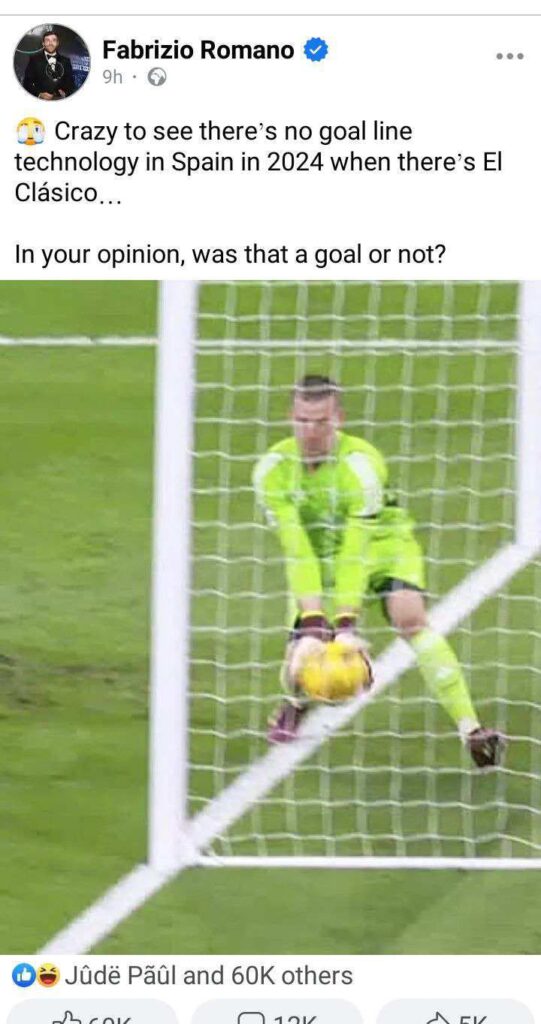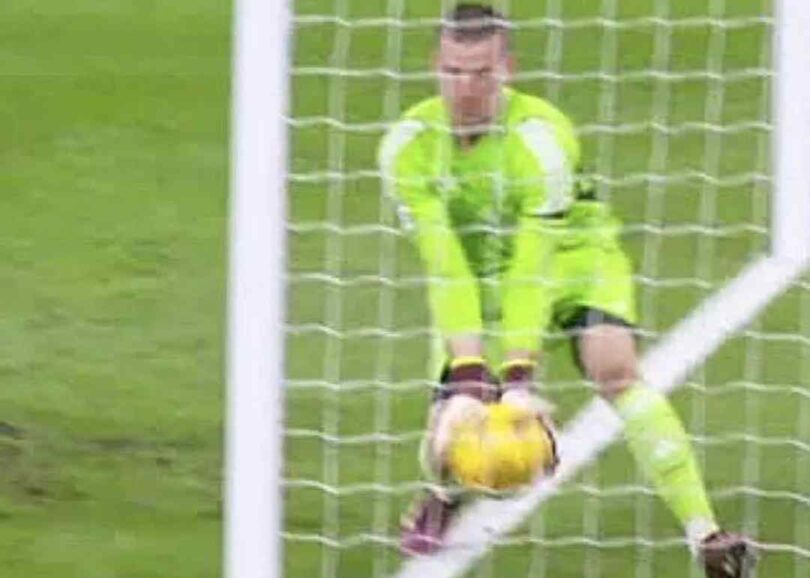In 2024, goal line technology is still missing from Spain, a football superpower. This is astonishing in a time when technology is ingrained in nearly every part of our life.
The lack of this vital instrument has drawn criticism, especially in light of high-profile games like El Clásico when a single goal can have a game-changing impact.

The famed El Clásico, the enduring rivalry between Real Madrid and FC Barcelona, transcends mere football; it’s a global spectacle that enthralls millions of fans worldwide.
However, despite its monumental significance, the absence of goal-line technology leaves referees grappling with split-second decisions on whether the ball has crossed the line.
This deficiency in technological support has spawned numerous controversies over the years, leaving teams and fans alike feeling aggrieved by avoidable officiating errors.
In a sport where success hinges on the finest of margins, such lapses in judgment can carry far-reaching consequences.
In contrast, leading football leagues worldwide, such as the English Premier League, Bundesliga, and Serie A, have long embraced goal-line technology, ensuring fairness and precision in officiating.
The introduction of systems like Hawk-Eye or GoalControl has notably curtailed disputes over goal-line incidents, bolstering referees’ credibility.
So why has Spain hesitated to follow suit? The reasons are manifold, encompassing financial constraints, traditionalist sentiments, and bureaucratic obstacles.
The installation and maintenance of goal-line technology entail substantial expenses, dissuading some Spanish clubs, particularly smaller ones with tighter budgets, from investing in it.
Moreover, Spanish football culture is steeped in a deep sense of tradition, with some fearing that excessive technological intervention would detract from the game’s essence, where human judgment and occasional errors are integral to the drama.
However, it’s essential to recognize that technology can augment, rather than overshadow, the sport’s beauty, as evidenced by its successful integration elsewhere.
Bureaucratic hurdles further impede progress. Implementing significant changes necessitates approval from various governing bodies, including the Spanish Football Federation (RFEF) and La Liga, processes that are often protracted and convoluted.
The absence of goal-line technology not only impacts high-profile clashes like El Clásico but also undermines the overall integrity of Spanish football.
With significant financial stakes at play in league standings, European qualification, and relegation battles, the accuracy of officiating assumes paramount importance.
The lack of technological support places undue pressure on referees, heightening the likelihood of errors that can sway the outcome of matches.







